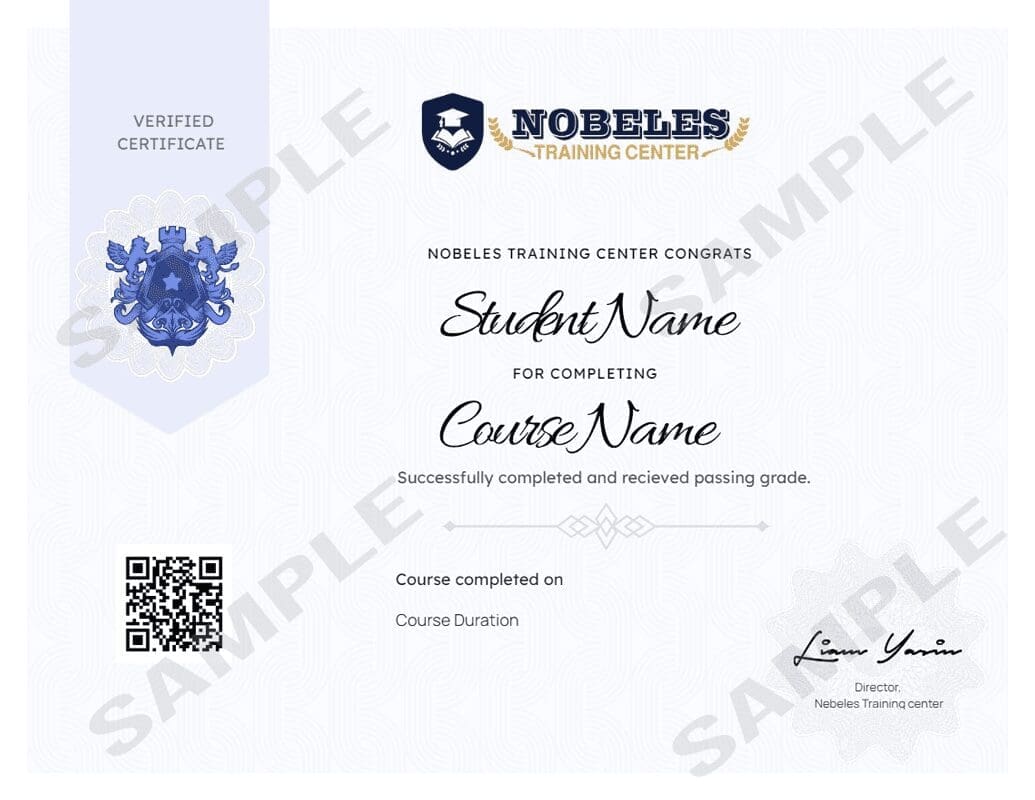Description
Curriculum
Instructor
Welcome to the Negotiation Skills workshop. Although people often think of boardrooms, suits, and million dollar deals when they hear the word “negotiation,†the truth is that we negotiate all the time. For example, have you ever:
- Decided where to eat with a group of friends?
- Decided on chore assignments with your family?
- Asked your boss for a raise?
These are all situations that involve negotiating! This workshop will give participants an understanding of the phases of negotiation, tools to use during a negotiation, and ways to build win-win solutions for all those involved.
Please enter your name and email to view the content:
Curriculum
- 11 Sections
- 11 Lessons
- 10 Hours
Expand all sectionsCollapse all sections
- Understanding NegotiationUnderstanding negotiation involves recognizing it as a process of communication aimed at reaching an agreement. Key elements include preparation, active listening, identifying interests, and striving for win-win outcomes for all parties.1
- Getting PreparedGetting prepared for negotiation involves researching the topic, defining objectives, and understanding the other party's needs. Developing strategies, practicing communication skills, and anticipating potential challenges enhance confidence and effectiveness during discussions.1
- Laying the GroundworkLaying the groundwork for negotiation involves establishing a positive atmosphere, building rapport, and clarifying goals. Setting clear expectations, discussing guidelines, and fostering open communication create a foundation for productive and collaborative discussions.1
- Phase One — Exchanging InformationPhase One — exchanging information involves sharing perspectives, interests, and priorities openly. Active listening and asking clarifying questions help uncover underlying motivations, fostering understanding and trust as both parties prepare for negotiation.1
- Phase Two — BargainingPhase Two — bargaining focuses on negotiating terms, making proposals, and discussing concessions. Effective communication, flexibility, and strategic problem-solving are crucial to finding mutually acceptable solutions while maintaining a collaborative and respectful atmosphere.1
- About Mutual GainMutual gain refers to achieving outcomes that benefit all parties involved in a negotiation. Fostering collaboration, understanding each party's needs, and exploring creative solutions enhance satisfaction and strengthen relationships for future interactions.1
- Phase Three — ClosingPhase Three — closing involves finalizing agreements and ensuring all parties understand the terms. Confirming commitments, addressing any remaining concerns, and expressing appreciation help solidify relationships and set the stage for future collaboration.1
- Dealing With Difficult IssuesDealing with difficult issues in negotiation requires maintaining composure, focusing on facts, and actively listening to concerns. Employing empathy, seeking common ground, and using problem-solving techniques can facilitate constructive dialogue and resolution.1
- Negotiating Outside the BoardroomNegotiating outside the boardroom involves using informal settings to build rapport and trust. Utilizing effective communication, active listening, and adaptability in diverse environments fosters collaboration and can lead to successful agreements in various contexts.1
- Negotiating on Behalf of Someone ElseNegotiating on behalf of someone else involves understanding their needs, interests, and goals thoroughly. Effective communication, active listening, and advocating for their best interests while maintaining transparency and trust are crucial for successful outcomes.1
- Post-TestPost-Test1
Nobles Center

5 Students146 Courses
Review
$275.00
341 students
11 lessons
Language: English
0 quiz
Assessments: Yes
Skill level All levels
Nobles Certificate
At the end of the course, you can download a copy of your certified certificate.
Nobeles Academy
Mobile Application
Download the Nobeles center mobile app from the app app store, click the button below
Courses you might be interested in
Working in a home office requires a unique set of skills. Teleworkers or virtual employees have additional challenges created by not being in a centralized office. Communication issues alone make...
-
1 Lesson
$175.00
Having the technical skills and knowledge to successfully execute your job duties is only one part of being the best you can be in the workplace. In addition to these...
-
0 Lessons
$225.00
The cloud has become a vital component for business as technology becomes embedded in modern life. Every leader needs to understand the cloud and how it operates, as well as...
-
0 Lessons
$195.00
Phone skills are a highly valuable tool to have in an employee’s skill-set, and Call Center Training will help provide those skills. This course will help = improve phone skills...
-
0 Lessons
$275.00






